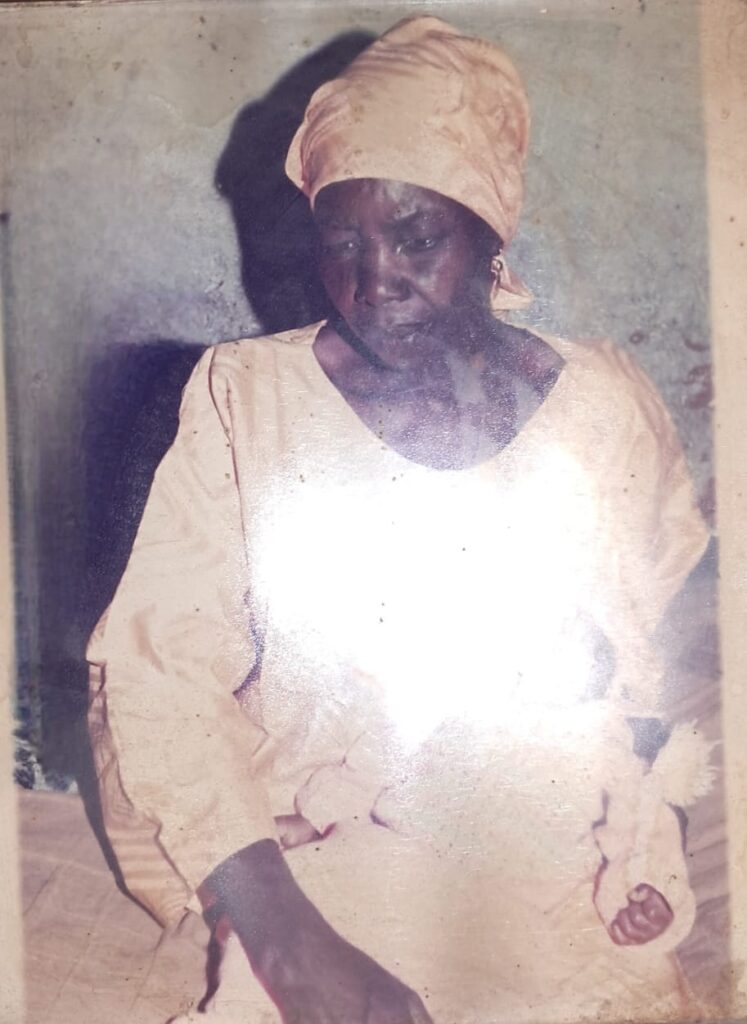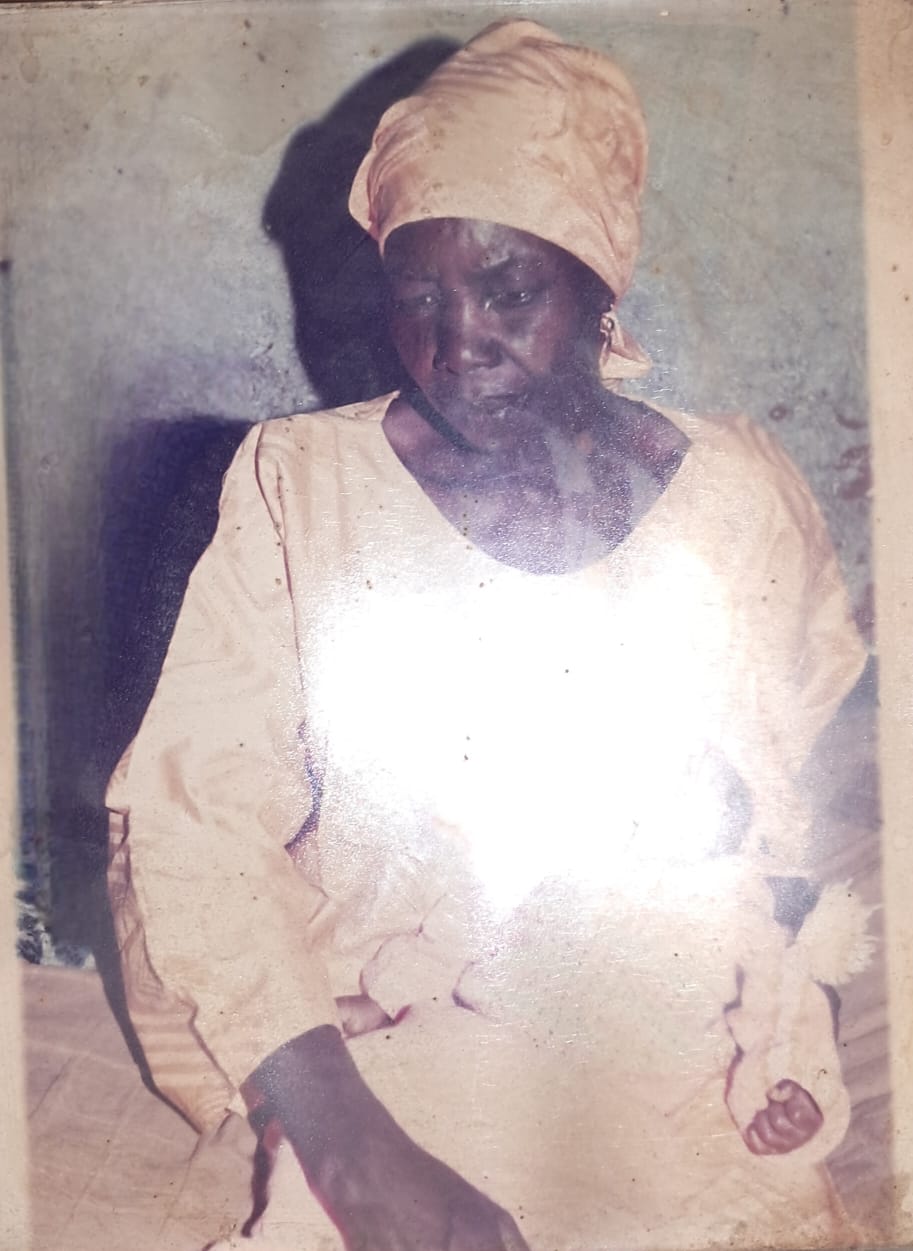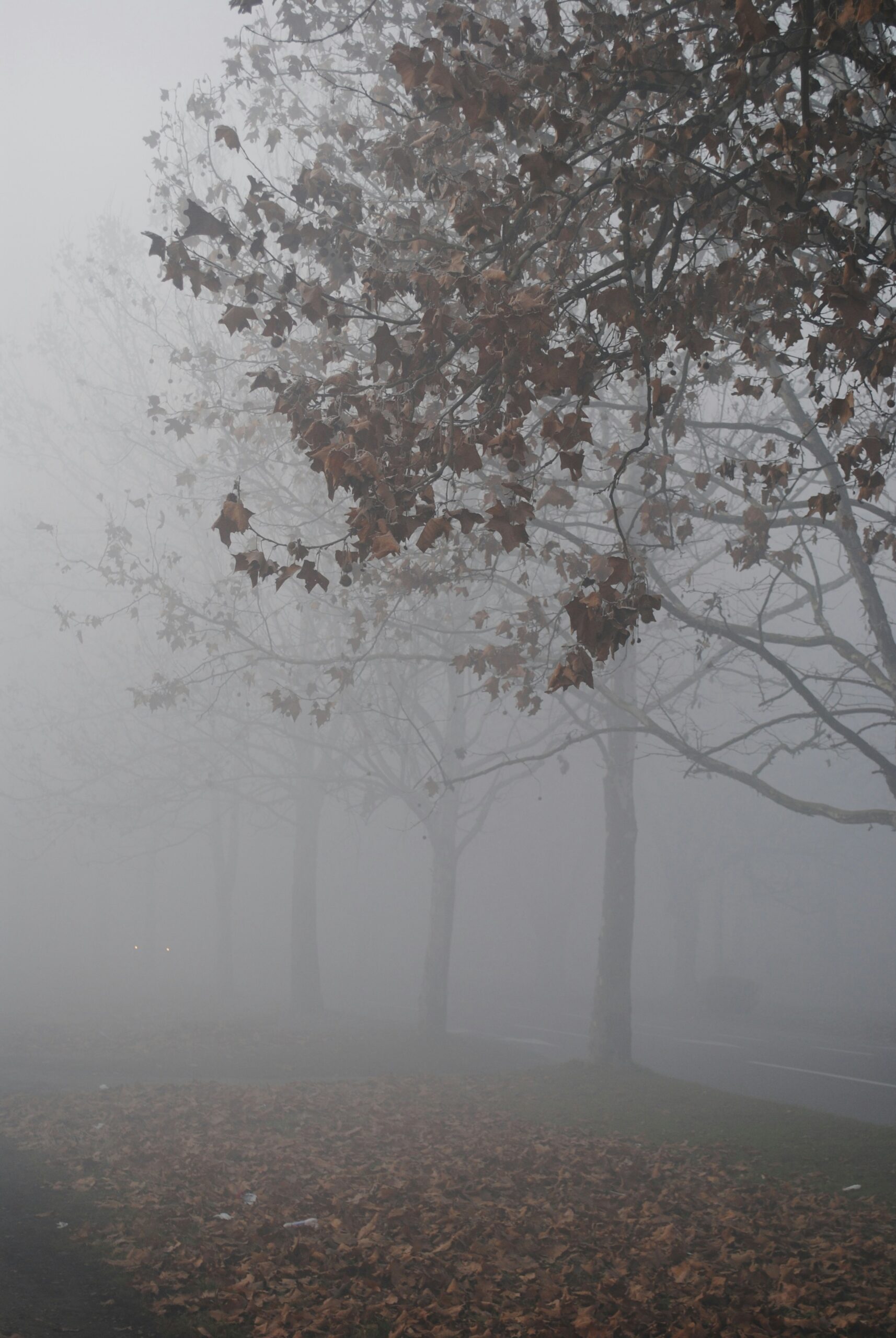Old age is not something the young look forward to. It is not that they wish to die, no. It is the inconvenience of it. I do not fancy aging. I mean, the thought of failing health, loss of peers, slow decline of cognitive function, faulty taste buds, declining vision, and all the other unpleasant things that accompany old age, does not paint an inviting picture. But the thing with life is, you either die young, or you grow old, and then die too. Old age may or may not feature in the poetry of life, but death is always the last stanza.
I do think about aging though and in the event that I make it to old age– in this country where everything is almost designed to kill you young– I want to be like my grandmother.
I would have her feet. I remember her feet because they are very similar to mine. Long, shapely, and dark everywhere, even on the soles. I remember her dark toenails. And her long toes, with the second toe longer than the rest. Her feet were so lean, she could hold each one with one hand, just like I can hold mine. My mother envies me for having her mother’s feet, though I suspect that what she’s most envious of is that I do not have to worry about my feet cracking and peeling off during harmattan like she does. That I never have to spend a long time with my feet soaked in warm water, rubbed with all sorts of oils just to minimize how much of it would peel off.
I remember my grandmother when anyone comments on my hatred for earrings. She always had earrings on, I do not. But maybe, old age would change that in me. She was the first person to make me realize it was not normal for a girl around here to walk about with no earrings. She’d say, “Ba a wuya, ba kunne?” whenever I go to her house with no earrings or necklace. What my grandmother didn’t know, or didn’t care about then, was that it was not that I was intentional about not wearing jewelry. It was that I always lost them, and my mother had given up on me, having gotten tired of wasting her money on my jewelry. But my grandmother didn’t care. She gave me a new pair of earrings any time she saw me without one on, until her death. It didn’t matter to her that I lost them. She’d go, “ungo nan, ki na yawo ba a wuya ba a kunne.”I am not sure my grandchildren would get the gifts of earrings though, maybe books, or poetry. But they would get gifts all the same.
I would make pepper soup the way she made it. I have never tasted pepper soup as hot and spicy as the one my grandmother made. Her pepper soup was so hot, it was as if it was cooked in hell. But she made the meat so soft, you needed no effort to chew it. And the aroma was that of something cooked by chefs in heaven. She made that pepper soup almost every day, or at least whenever I was around. Thinking back now, she was never in short supply of meat. Her husband had given some butchers a free shop outside his house for years. As a token of appreciation, they gave the household free meat every other day for as long as they occupied the shop. Clever man! And because I have always had chronic colds and coughs even as a child, she often had me sitting, legs folded, with a bowl of steaming hot pepper soup and a spoon. She would sit and fix me with her gaze, while I devoured spoon after spoon of the hot and spicy delicacy. I remember having to have a handkerchief on my left hand. I used to wipe the tears and rheum that flowed freely on my face with it. Sometimes, the heat of the meal stayed on my tongue for hours after I was done. Yet, I never refused to eat it. Not that I am a fan of the hot, spicy thing. But I loved meat. And no amount of chili or other spices could stop me from taking it.
I would have a bed just like my grandmother’s. We called it the spring bed, obviously it had springs.. We loved that bed. We raced to it, when we visited her. And one of our delights was jumping up and down, exhilarated by how the bed sprung back and forth with our weights. She kept a lot of things under that bed. I would make mine my safety deposit box too. She kept the kerosine she sold under that bed, in a cream-colored jerry can that was almost brown from years of use. She dispensed this into small bottles of used cough syrup, children’s paracetamol, and other drugs, and sold them for five or ten naira each, depending on the size of the bottle. At sunset, and sometimes, all through the night, her customers, most of whom were children sent in by their mothers, came to buy kerosine for the kerosine lamps or aci-bal-bal that were used to navigate the darkness. I found delight in assisting her.; collecting the lamps or other containers from the kids, bringing it to her, sometimes, even dispensing the kerosine myself, and giving them their change. It made me feel like an adult. Not the child that everyone kept reminding me that I was. I would make my bed my safety deposit box too.
I would sell a lot of things. Petty things. My grandmother sold a lot of other things too. Roasted groundnuts, which she dispensed in used milk or tomato paste tins , kola nuts, which she kept on a tray, covered with a soft cloth that was always kept damp (I never got how to properly sell those), earrings, most of which she ended up giving to her grandchildren anyway, and a lot of other things she sold only seasonally.
I would not be a very friendly grandmother. My grandmother didn’t joke around or call us her co-wives like her co-wife did. She was serious. And I will be too. She had a look that sent everyone back to his senses. But she was beautiful, and generous. And even in old age she had such grace and calmness that kept me in awe of her till today.
I remember my grandmother by a lot of things, and when I picture myself in old age, I see myself in her image. Tall, lean, with a slightly curved back, a head full of gray hair that tangles and covers my eyes when being loose. Rheumy eyes set on a dark lean face, hands that are ever generous, and a serious demeanor that resets naughty grandchildren back to their default setting.

- In The Poetry of Life: The Poetic Side of Melancholy | Nasiba Babale - April 11, 2025
- In The Poetry of Life: The S. I. Unit of Love | Nasiba Babale - January 31, 2025
- In The Poetry of Life: Things I Remember About My Grandmother | Nasiba Babale - January 10, 2025












Leave a Reply